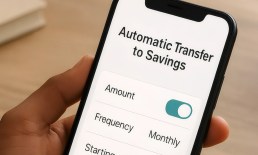While U.S. eCommerce growth rates descend with consumers doing more shopping in stores, South Korean eCommerce platform Coupang is benefitting from a spike in COVID-19 cases that is forcing local shoppers to do more of their dealing online.
In the company’s second earnings report since going public in March, Coupang said Wednesday (Aug. 11) that it had $4.5 billion in revenue in the three months ended June 30, a 71 percent year-over-year increase. Active customers increased by 26 percent to 17 million, and revenue per active customer grew 36 percent compared to 2020.
Coupang operates several differentiated businesses, including its core eCommerce platform, a grocery delivery service, a food delivery service that it launched in April, and a video streaming platform that it launched in December, all of which Founder and CEO Bom Kim said bolster each other.
“As one offering blooms, boosting customer frequency, it drives growth in other offerings,” Kim told analysts and investors on a conference call. “New products create more reason for customers to start their journey on Coupang, and that expansion of the top of the funnel drives growth of existing products as well.”
To be sure, the so-called “Amazon of South Korea” is currently facing criticism over its labor practices and workplace safety after several worker deaths at warehouses, as well as consumer boycotts over its handling of a June fire that killed one person and destroyed one of Coupang’s largest fulfillment centers. Coupang said the fire caused a $158 million loss of inventory and a $127 million loss of property and equipment, in addition to $11 million in operating and administrative costs.
Coupang is also facing allegations that it has messed with search algorithms to prioritize its own products over those of rivals, and the Korea Fair Trade Commission imposed a $23 million fine on the company for tampering with video and shopping search algorithms in its Naver internet portal to put its own service ahead of others.
Advertisement: Scroll to Continue
See also: Korea Fair Trade Commission Probes Coupang’s Algorithm Use
The South Korean eCommerce platform’s results follow last month’s report from Amazon, in which the company said it had $113 billion in net sales in the second quarter, up 27 percent versus the same period last year but below analysts’ expectations. Chief Financial Officer Brian Olsavsky attributed the deceleration to moderated spending from Prime members and consumers’ increased mobility as the pandemic wanes.
Read more: Amazon Sees Decelerating Sales As Post-Lockdown Life Resumes
“I think the impact of people getting vaccinated and getting out in the world — not only shopping offline but also living life and getting out — it takes away from shopping time,” Olsavsky told analysts and investors.
Opportunity On The Horizon
Kim noted that Coupang has several experiments and initiatives in the works, with eyes on several others as it looks to spend the $3.5 billion it raised in its initial public offering (IPO). Of particular note are Coupang’s interests in merchant services and FinTech, although Kim said the company is careful to make sure new offerings don’t grow at the expense of the current business.
Kim said he’s in no rush to enter FinTech but said he sees many “exciting opportunities” in the broad space.
“At this point, we’re still learning, we’re still experimenting,” he said. “We know that big opportunity is waiting for us.”
Kim said part of the beauty of Coupang is that “we’re not a company that’s defined around doing one thing well, like building cars, or defined by a certain business model. Our strength is our culture of innovation and our technology and operational excellence.”
Coupang has also begun expanding internationally to Japan and Taiwan, although Kim said it is too early in the process to elaborate on what the company is seeing in those locales. He noted, though, that just as with other experiments and projects Coupang is working on, initial investments abroad are small, and “the real capital investments come over time as our confidence grows.”
“We’re excited about those opportunities, but I think sharing about learnings and solutions we’ll reserve for a bit later in the process,” Kim added.




